Cost Engineering, Risk Management, Earned Value Management
With the increasing complexity of energy related projects in a challenging and volatile market companies need to develop strategies to optimize project cost performance. We would like to get your attention for the 5-day Cost Engineering course.This course will also focus on Cost Reduction Strategies, distinguishing three important aspects of Cost Reduction:
- Cost Reduction by Scope optimization and reduction (Cost awareness, Value engineering, Target Costing, Life Cycle Costing, Scope standardization, Value Improvement Practices)
- Cost Reduction through Contracting and Procurement Strategies (Contracting strategies, Competitive bidding & tendering, Contract management)
- Cost Reduction through Project Execution & Control (Project Execution Planning, Project Controls Planning, Supply Chain Management, Optimized Project Teams, Total Cost Management)
This course will equip participants to develop, execute and control projects at the lowest cost and therefore optimize the project profitability. It is developed as a 3-day course Cost Engineering (including the Cost Reduction Strategies) and a 2-day course Earned Value Management. Both courses can be taken separately, but also as a combined full week
Overview
Cost Engineering and Risk Management (Day 1 – 3) program will cover the latest techniques and practical methodologies of project cost engineering and risk management to successfully manage project cost and risk, in order to maximize business ROI in the long term. You will gain the combination of unmatched risk analysis skills, cost engineering and thorough knowledge of your project parameters and uncertainties.
Earned Value Management (Day 4-5) program will cover the principles, methodologies and industry best practices in Earned Value Management. Using the knowledge to analyze project performance and to provide accurate cost and schedule forecasting, you will be able to contribute to your project’s increased performance and success. Delegates will be guided through step-by-step case studies.
Learning Objectives
- DEVELOP a sound understanding of the principles, methodologies and industry best practices in Cost Engineering and Earned Value Management
- UNDERSTAND the business context, the project life cycle and the purpose of Cost Engineering in Energy projects
- LEARN to prepare cost estimates, from high-level factor estimating to very detailed equipment and bulk material cost.
- LEARN to develop and work with Work Breakdown Structures, work packages, project baselines and project forecasts
- UNDERSTAND the impact of project location, market environment and project execution strategy on project cost
- LEARN how to control, forecast and report the cost and progress during project execution
- WORK on real Energy project case studies to practice all aspects of this masterclass
Who should attend
Who should attend
- Cost Engineers
- Cost Estimators
- Cost Controllers
- Project Managers
- Project Engineers
- Project Planners
- Finance Managers & Executives
Modules
Day 1
Estimating Definitions
- Project Life Cycle
- Purpose of Estimates
- Accuracy and Probability
- Allowances
- Contingency and Escalation
- Money of the Day / Real Term
- Estimating Plan
- Basis of Estimate
Factor Estimating
- Definitions, advantages and disadvantages • Exponent method
- Cost per capacity method
- Lang, Hand and Chilton method
- Peter-Timmerhaus method
- Specific factor method
- Case study: Factor estimating
Quantity Ratio Estimating
- Definitions, advantages and disadvantages • Quantity ratios for piping
- Quantity ratios for electrical & instrumentation • Quantity ratios for structural steel
- Quantity ratios for civil, painting & insulation Case study: Quantity ratio estimating
Parametric and Range Estimating
- Nomenclature
- Pareto’s Law
- Critical elements and key questions
- Range estimating input and simulation
Detailed Estimating
- Discipline estimating
- Unit rates & sources of pricing
- Estimating of equipment
- Piping estimate
- Insulation estimate
- Civil estimate
- Case study: Detailed estimating
Day 2
Location Factors and Market Factors
- How to set up a location factor
- Location cost surveys
- Steel and commodity prices
- Benchmarks
- Indices
- Cost modeling
- Case study: Analyzing differences between locations and markets
Budgeting
- Setting up a project budget
- Project baseline
- Contingency allocation
- Work breakdown structure
- Cost breakdown structure
- Code of accounts
- Interaction with Contracting & Procurement Case study: From estimate to budget
Project Control
- Why Cost Control
- Potential influences on costs
- Pre-requisites for effective cost control
- Cost control plan and procedures
- Schedule control
- Progress measurement
- Earned value analysis / management
- Project controls best practices
- Integrated cost & schedule control
- Project control tools
- Case study: Earned value analysis
Advanced Project Control
- Management of change
- Re-baseline
- Monthly reports
- Forecasting
- Cashflow analysis
- Controlling cost of quality and safety
- Project close-out & lessons learned
- How to manage project control
- Total Cost Management
- Case study: Advanced project control
Day 3
Project Assurance
- Estimate verification and assurance
- Estimate assurance reviews
- Client vs contractor estimate reconciliation Case Study: Project assurance
Risk Analysis Introduction and Definitions
- Definitions and terminology
- Risk register
- Cost risk analysis
- Schedule risk analysis
- Deterministic methodology
- Probabilistic methodology
- Risk analysis tools
- Risk management
- Case study: Setting up a risk analysis model
Risk Management
- Risk mitigation
- Project risk management
- Case study: Risk management
Schedule Risk Analysis
- Uncertainties in duration
- PERT
- Critical path
- Critical chain
- Case study: Schedule risk analysis
Integrated Cost and Schedule Risk Analysis
- Correlation between cost and schedule risks • Essentials of cost and schedule risk analysis • Methodology
- Case study: Integrated cost / schedule risk analysis
Day 4
Definitions, Objectives, Methodologies and Analysis
- Course objectives
- Course program
- Case studies
Definitions and Principles
- Cost Engineering definitions
- Estimates, budgets and value
- Budget and Contingency allocation
- Project baseline
- Work Breakdown Structure
- Cost Breakdown Structure
- Work packages
- Allocation of budget to WBS and work packages
- Basic Earned Value terminology
- Case Study: Budget allocation
Project Control
- Project Control objectives
- Project Control variables
- Project Control methodologies
- Project Control cycle
- Project Control plan and procedures
- Project Control best practices
- Schedule Control
- Integrated Cost & Schedule Control
- Case Study: Project baseline and control sheet
Earned Value Analysis
- Earned Value Analysis overview
- Evaluate Earned Value techniques
- Define and assess Earned Value
- Cost Variance (CV) and Schedule Variance (SV)
- Cost and Schedule Performance Indicators (CPI and SPI)
- Forecasting on Cost and Schedule
- Different forecasting methodologies and formulas
- Accuracy of Cost and Schedule forecasts • Generate and Validate Estimate at Completion
- Cost and Schedule performance curves • Trend analysis
- Productivity analysis
- Earned Schedule analysis
- Case Study: Earned Value Analysis
Day 5
Monitoring, Reporting & Advanced EVM
Monitoring
- Elements of monitoring
- Productivity
- Progress measurement
- Progress milestones
- Monitoring plan
- Cost and Schedule performance
- Identify the steps used in updating the project status
- Understand how predictive performance data is used
- Controlling/managing engineering cost & schedule
- Controlling/managing equipment cost & schedule
- Controlling/managing bulk materials cost & schedule
- Controlling/managing construction cost & schedule
- Baseline Schedule date vs Forecast date
- Case Study: Earned Value
Reporting
- Reporting requirements
- Reporting calendar
- Reporting templates
- Report on Program Performance Using EVMS
- Best Practices
- Project dashboards
- Case Study: Project Controls Report and Dashboard
Advanced Earned Value Management
- Management of Change
- Problems and pitfalls
- Pro’s and con’s of Earned Value Management
- Alternatives to Earned Value Management
- Earned Value vs Value of Work Done
- Managing change and re-baseline
- How to manage Project Control
- Implementing Earned Value Management
- Earned Value Management tools
- Identify appropriate Work Authorization Levels
- Use CPI and SPI in project management.
- EVM and related management responsibilities
- Total Cost Management
- Project close-out & lessons learned
- Case Study: Advanced Earned Value Management
About Richard Slingerland
Richard Slingerland
 is a Certified Cost Engineer and a former Board Member of the Dutch Association of Cost Engineers. He is the owner of Pareto Cost Consultancy; a company specialized in cost estimating, project economics, estimate & schedule assurance reviews, project control, benchmarking and value engineering.
is a Certified Cost Engineer and a former Board Member of the Dutch Association of Cost Engineers. He is the owner of Pareto Cost Consultancy; a company specialized in cost estimating, project economics, estimate & schedule assurance reviews, project control, benchmarking and value engineering.
Richard has more than 25 years of industrial experience in consulting energy projects, both upstream and downstream. For almost ten years, Richard worked in various Shell locations including The Hague, Netherlands, Malaysia and Central America.
Download Brochure and Articles
To learn more and view the course outline fill the form below to download the brochure and related articles.


